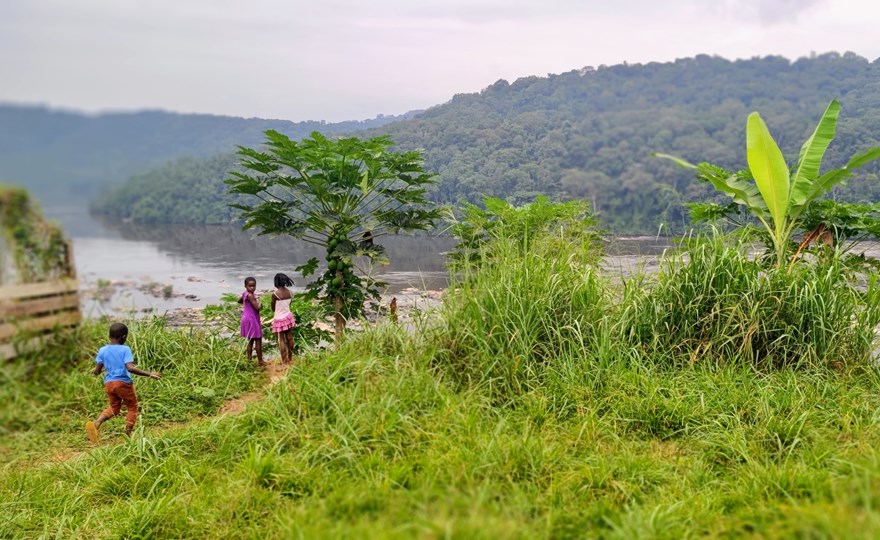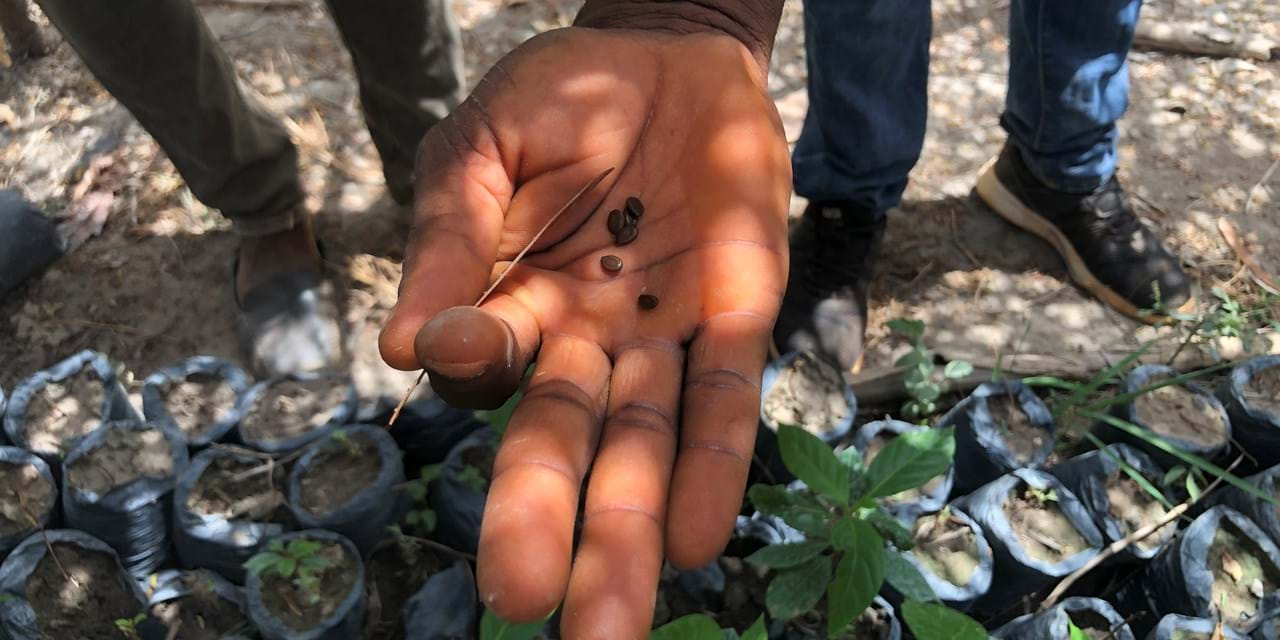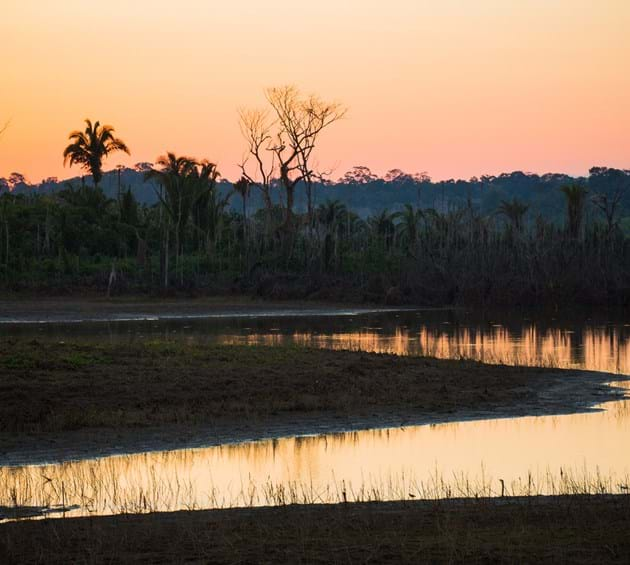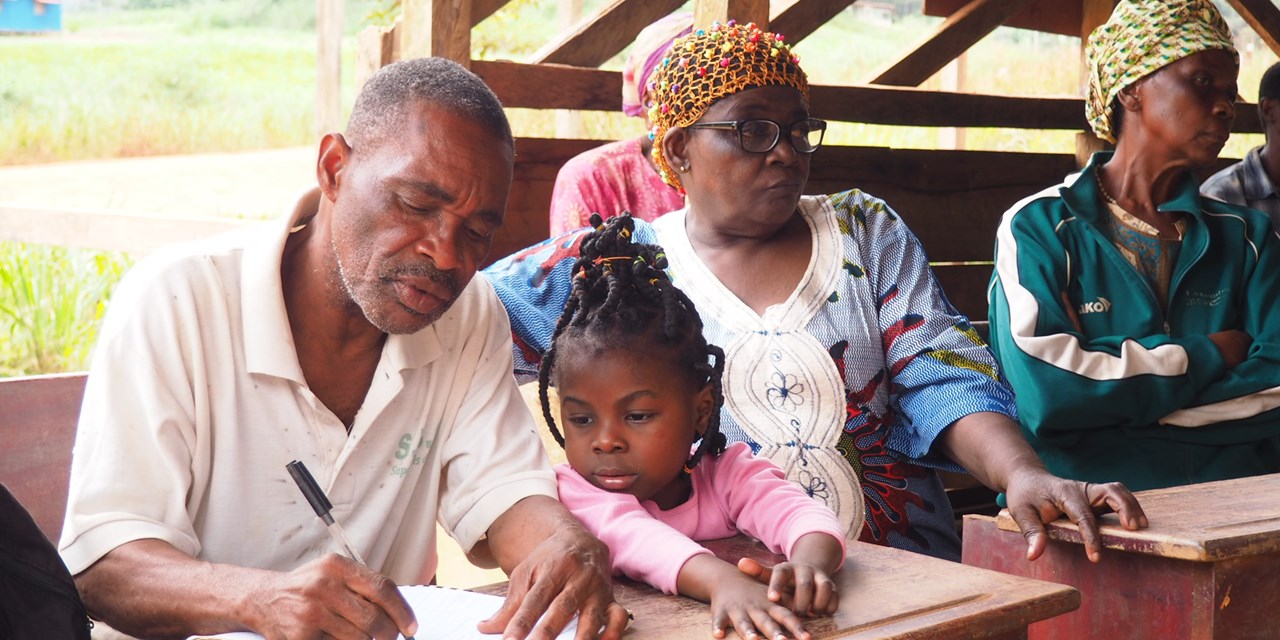ClientEarth Communications
31st January 2023


The law is a powerful tool for people and the planet - a tool to bring justice, provide accountability, and bring the broader societal shifts needed to restore the natural world.
Deforestation is one of the key crises threatening life on Earth. It’s clear that we cannot survive without forests. But the economic systems that deliver the goods and services that rich countries rely upon – especially the ways food reaches supermarket shelves – are driving the destruction of the world’s forests at a devastating rate.
Using the law, we can make a change. We work extensively in partnerships with organisations and forest communities to help build awareness, knowledge and understanding of the law and make it more accessible to people on the frontline of forest destruction.
Get updates on our forests work
Forests are a source of food and medicine for all of us. They are deeply connected to the culture and livelihoods of billions of people across the world. And they are vital to helping fight the climate crisis and preserving biodiversity. But they are also under threat from deforestation.
One of the main causes of deforestation is destructive agriculture practices. Vast stretches of forest across the world are burnt and cleared to make way for cattle ranches, soy fields, and plantations of palm oil, cocoa, coffee, rubber, maize, and timber. An area of forest the size of a football pitch is cut down every two seconds.
Cote d’Ivoire, which produces more than a third of the world’s cocoa, has lost most of its forest cover in the last 50 years to the boom in the global chocolate industry. With the majority of forest land now degraded, industrial chocolate manufacturers and illegal miners are pushing into national parks and encroaching on some of the most preserved areas of the rainforest.
ClientEarth has been working with lawyers and civil society partners in the country for seven years. Together we have helped to shape laws that foster sustainable management of Cote d’Ivoire’s forests and are acting to make these laws more accessible to the communities that depend on them for their livelihoods.
Cote d’Ivoire reformed its forest laws in 2019, resulting in the introduction of a new forest code. With this framework, the country is now steadily working to restore 20% of its original forest cover by 2030. It is not perfect, but it’s a positive step – not least because it forces international companies to restore degraded land, improve forest cover, and promote sustainable livelihoods and agriculture in areas most at risk.
Dr Raphaël Kra, senior lawyer and ClientEarth’s in-country associate in Cote d’Ivoire, explained: “The forests we protect are subject to deforestation, clearing for agriculture, and illegal logging. This affects communities through disruption of the rainfall cycle, destruction of biodiversity, and reduction of other vital ecosystems.
“It is important to have strong laws because the penalties attached to them lead companies to preserve and restore forests for the well-being of communities.”

Bruno Martins Morais is a lawyer and anthropologist in Brazil. For the last 15 years, he has been advising traditional peoples and communities in Latin America in the face of increasing deforestation.
After former President Jair Bolsonaro took office in 2018, while threatening to turn the Amazon into the country’s “economic soul”, deforestation of the Amazonas reached its highest rate in 15 years. Now it has almost reached a tipping point. For the people on the frontline of this destruction, it has meant an increase in human rights violations and threats to their lives.
Bruno said: “Every day there are new cases of threats, aggressions, deaths, and forced disappearances of Indigenous, Quilombola, and non-indigenous traditional communities.”
With President Luiz Inácio Lula da Silva now in office, vowing to reverse Amazon deforestation and appointing Amazon defenders in key leadership positions, there is hope that Indigenous and environmental protections will be rebuilt.
However, the dangers to Brazil’s Indigenous Peoples will not disappear overnight. Most of the country’s remaining forests exist in their territories and are targeted by loggers, land grabbers, illegal miners and other criminals with increasing violence.
According to Bruno, legal action is one tool that has supported communities in their fight, but he stressed that it must complement the broader campaign of Indigenous Peoples.
“There is a role that the law must play in the fight to protect forests, and it is a supporting role,” he said. “Litigation cases, or even advocacy campaigns – especially those of a transnational nature – can contribute to this struggle when they are aligned with the agenda of the forest communities and peoples themselves, with their political and mobilisation goals.”

"Inhabiting the state of Rondônia, the Uru-Eu-Wau-Wau are a recently contacted Indigenous people who for 40 years have been mobilised against settlers that the government itself has sent to their land. These settlers now have access to public and private financing, and grow their possessions opening up pastures, and plant crops over deforested areas.
The Uru-Eu-Wau-Wau are deeply mobilised in an agenda of surveillance of their territory. This struggle has already yielded violent episodes, including deaths on both sides. Their Indigenous organization, Jupaú, has used different instruments to raise the profile of this case and force the state to take action. The world tour of the film "The Territory" produced by National Geographic is playing a big role in this – a role augmenting the strategic litigation conducted by a coalition of civil society organisations in Europe and the United States that are suing the Casino group for benefiting from damage caused to the Indigenous land." - Bruno Martins Morais
Indigenous People and forest communities are by far the best guardians of the world’s forests. They manage at least a quarter of land across the globe and shelter at least 80% of the planet’s biodiversity.
Protecting the rights both in national and international law of the communities on the frontline of forest protection is therefore an essential part of tackling the deforestation crisis.
In Cambodia, the Government is updating laws governing community-protected areas, which give people that live in or depend on forests legal claim over their lands in the form of contracts.
At present, these contracts are only short term. Communities are granted management over protected areas for only 15 years, which is deeply ineffective for long-term sustainable planning and developing appropriate sustainable economic activities.
The draft reforms will go some way to address this, hopefully expanding the period of time to 25 to 30 years. Kanyara Sath, our in-country legal associate in Cambodia who has been working with forest communities for more than a decade, said that, although not yet finalised, the legal reform could have a real impact on the ground.
“I see the trend that they could move forward in a positive way,” she said. “If done right, the law can be a game-changer. A good law can help communities develop their economy in their local area. A good law will bring the community better land tenure security and help them against illegal loggers or landgrabbers that try to claim their land illegally. A good law helps communities to improve law enforcement and community control.”
Land rights are just one part of the puzzle. Too often, forest communities are shut out of decision-making processes that impact their land and lack support in managing them sustainably.
In Gabon, the right to benefit sharing – which ensures revenues from forest activities are distributed to local communities in a way that is fair and equitable – has existed in law for more than 20 years. But without text for how the right should be applied its existence was practically redundant.
That all changed in 2016. Following a successful campaign by civil society organisations supported by ClientEarth, the Government adopted guidelines that describe step-by-step how sharing benefits between communities should operate in practice. This has equipped local communities with a rigid framework to hold logging companies to account when they don’t fulfil their side of the deal.
We have been working with Gabonese organisation Brainforest in raising awareness in communities of their rights and how the law can support them to manage their natural resources sustainably. “Forests are their means of survival; as much as communities are affected, forests are vulnerable,” according to Jenny Mboumba Madouta, Deputy Head of Forest Governance at Brainforest. “The law is the fact of stating the fundamental principles that must be respected; the fundamental texts on forestry make it possible, through this regulatory framework, to secure the forests in a sustainable manner but also to secure the communities that live around these forests.”

The soaring rate of forest loss is driven by the unsustainable production and consumption of just a handful of products all over the world. Deforestation won’t be halted unless the countries consuming the most take responsibility for their role in it.
The EU, the second highest importer of deforestation, has taken the first steps. It has adopted a law that will block companies from selling products linked to nature destruction on its market – a ground-breaking move that could trigger a major shift in the global food production system.
The strength of this law has been the result of millions of voices standing against deforestation. We worked together with hundreds of campaigning organisations pushing for strong legal rules; scientists, Indigenous activists and leaders spoke out; and prominent artists around the world pushed lawmakers to take bold action.
The next frontier is implementation. We will continue to work with partners in both consumer and producer countries to ensure that this law is as powerful in practice as it is on paper.
And we will keep fighting for a world where our supermarkets and shopping baskets are free from products that have harmed people, forests and nature.